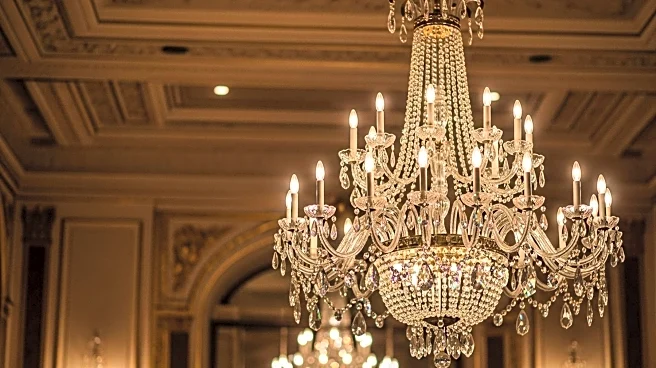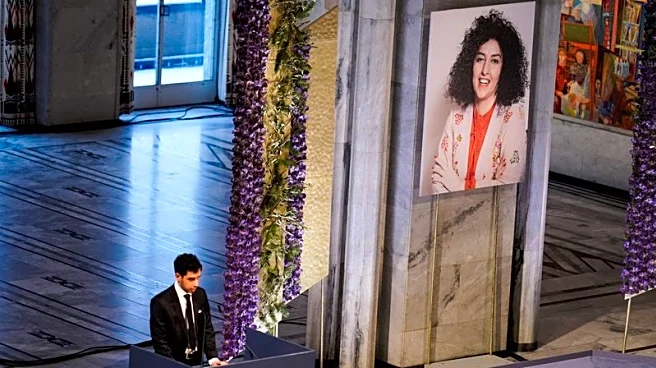What is the story about?
What's Happening?
Harrods Group (Holdings) Limited has announced a stable financial performance for the year, with a slight increase in turnover by 0.6% to £1.08 billion. This comes despite a challenging environment for the global luxury sector. The group, which includes the iconic Knightsbridge store, online business, and various concessions and operations, recorded a gross transaction value of £2.20 billion, marking a 2.4% decrease from the previous year. Operating profit before exceptional items and pension losses fell by 17% to £177.7 million, attributed to higher staff costs and increased distribution expenses. Exceptional costs led to a pre-tax loss of £34.3 million and a post-tax loss of £36.5 million. Managing Director Michael Ward highlighted the company's ongoing investments, including the redevelopment of its womenswear departments and the renovation of The Georgian restaurant. Additionally, Harrods launched the Harrods Redress Scheme, a compensation program for survivors of historic abuse by former chairman Mohamed Fayed, which has seen over 100 survivors enter the process.
Why It's Important?
The financial results of Harrods Group underscore the resilience of luxury brands in maintaining stability despite broader sector challenges. The luxury retail sector has been facing headwinds due to economic uncertainties and changing consumer behaviors. Harrods' ability to sustain its turnover and continue investing in its flagship store reflects its strong brand equity and commitment to customer experience. The launch of the Harrods Redress Scheme also highlights the company's efforts to address past grievances and improve its corporate responsibility image. This development could influence other luxury brands to adopt similar measures, potentially reshaping industry standards for addressing historical misconduct.
What's Next?
Harrods plans to keep the Harrods Redress Scheme open until March 31, 2026, allowing more survivors to come forward. The company is likely to continue its investment in digital transformation and store renovations to enhance customer experience and maintain its competitive edge. The luxury sector will be closely watching Harrods' strategies as a potential model for navigating economic challenges and addressing corporate responsibility issues. Stakeholders, including investors and consumers, will be keen to see how these initiatives impact Harrods' long-term growth and reputation.
Beyond the Headlines
The introduction of the Harrods Redress Scheme may set a precedent for how luxury brands handle historical misconduct, potentially leading to broader industry changes. This move could encourage other companies to proactively address past issues, thereby improving transparency and trust with consumers. Additionally, Harrods' focus on digital transformation and customer experience could drive innovation in the luxury retail sector, influencing how brands engage with their clientele in an increasingly digital world.
















